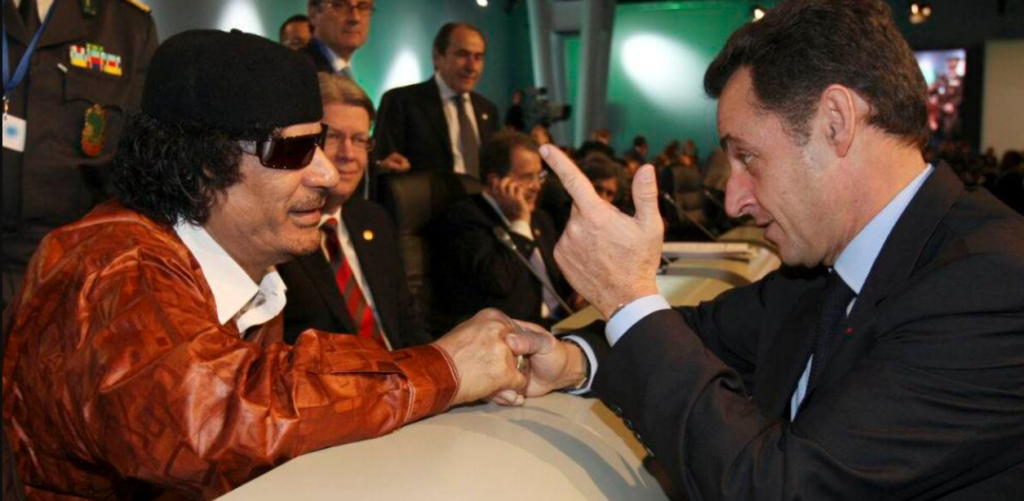
The criminal case of ex-France President Nicolas Sarkozy touches the historical tensions between Muammar Gaddafi’s Libya and Western powers, particularly France. In a recent development, a Paris court sentenced Sarkozy to five years in prison for criminal conspiracy, marking a historic conviction for a former French president.
The charges? They are allegations that the Libyan government funneled millions of euros (estimates range from €5 million to €50 million) to Sarkozy’s 2007 presidential campaign to facilitate Libya’s Western rapprochement. France’s later leading role in Libya’s destruction was motivated by both geopolitical fears of an empowered Africa and Sarkozy’s need to conceal personal corruption.
At his trial on September 25, 2025, Sarkozy told reporters that he was innocent. “I will not apologize for something I didn’t do.” The sentence is enforceable immediately, with the judge saying Sarkozy would have just a short period to put his affairs in order before prosecutors call on him to head to prison.
French media said Sarkozy would be summoned on October 13 to be told when he would be jailed. Ironically, this is seven days before the anniversary of Gaddafi’s death—October 20, 2011—when French fighter jets and on the ground agents were directly complicit in the murder of a foreign head of state.
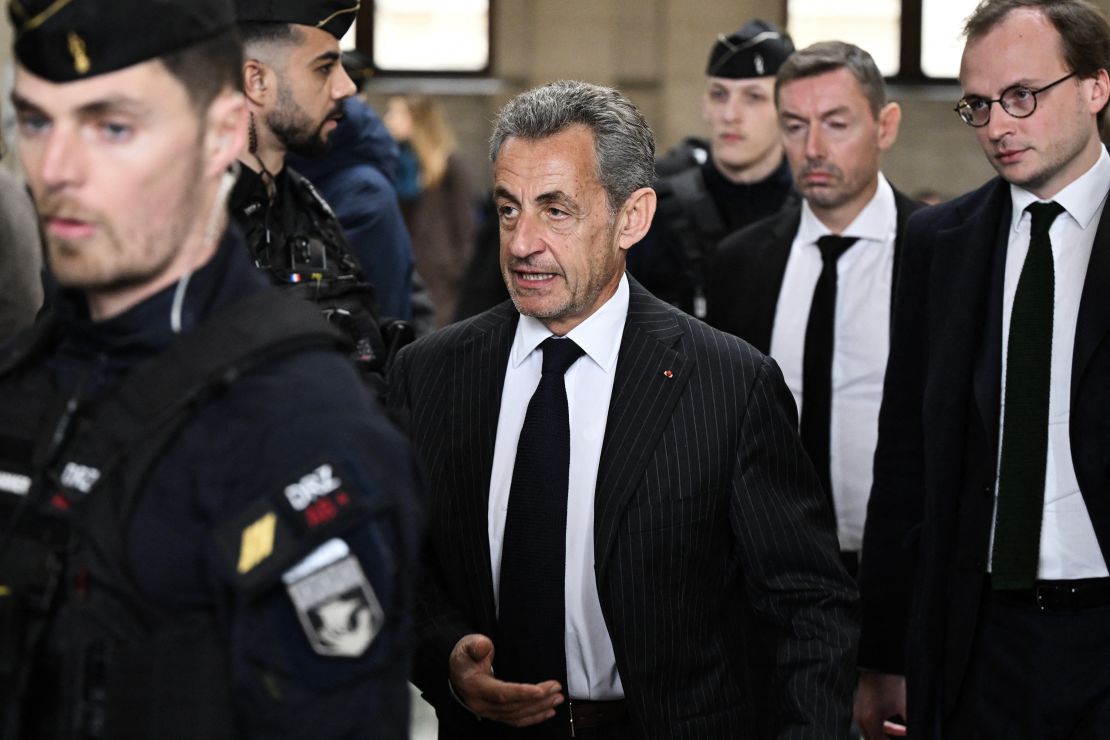
The North African country of Libya was once a continental leader, driving the continent to form the African Union in September 1999. This was known as the Sirte Declaration, when delegations from across the continent flocked to the coastal city to begin building a new African future. In the north, France watched begrudgingly. Since 1969, Libya had been a thorn in the side of the European colonial powers.
Libya supported liberation movements on the African continent, as well as abroad. The ousting of the revolutionary government of Muammar Gaddafi was a decades-long fantasy of the Western powers. Gaddafi had repeatedly wiped salt in the wounds of the colonial West, whether by supporting such groups as the Irish Republican Army, or opposing apartheid in both Gaza and South Africa.
Nelson Mandela praised Libya as a Pan-African continental leader. Elaborating that their support was pivotal in the success of the South African anti-apartheid movement, many African countries looked to Libya as not only a leader, but a stabilizing force as well. This included those in so-called Francophone Africa.
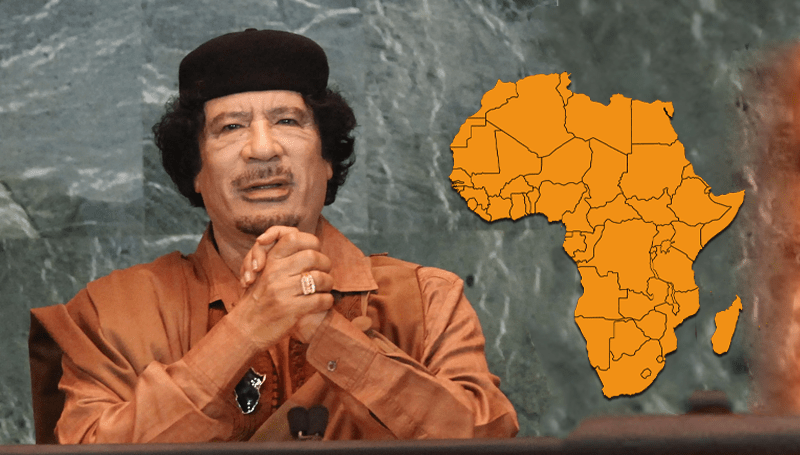
When Libya experienced its al-Fateh Revolution in 1969, known as Gaddafi’s Bloodless Coup, Libya was in fact among the poorest countries in the entire world. In short time, Gaddafi’s revolutionary government transformed the country into an oasis, thanks in part to large domestic oil reserves, as well as the sober policies of Muammar Gaddafi. Libya was, in fact, the first country in the world to gain a majority stake in its own domestic production, something which made the colonial powers nervous.
Throughout the 20th century, Libya’s revolutionary ambitions were largely shielded, thanks to diverse international friendships, such as with the USSR, Mao’s China, and various countries throughout the developing world. After the collapse of the USSR, however, many countries needed to adjust to the new era of unipolarity.
Gaddafi’s Jamahiriya or State of the Masses, was no exception. After decades of sanctions, Libya was desperate to join the new “International Community.” Libya gave up its weapons of mass destruction program in 2003, as well as caving to intense pressure to settle the infamous Lockerbie Affair. In addition, Gaddafi agreed to begin transitioning Libya’s state-planned economy to a market-oriented one.
However, it quickly became apparent that these changes were merely cosmetic and that Colonel Gaddafi had not forgotten his anti-colonial attitudes. His tactics merely changed: Instead of funding liberation movements, Gaddafi provided much needed continental investment, such as funding the first African satellite in 2008, which saved the continent a combined total of $500 million (US) per year, an amount which had in the past gone into the pockets of European telecommunication companies.
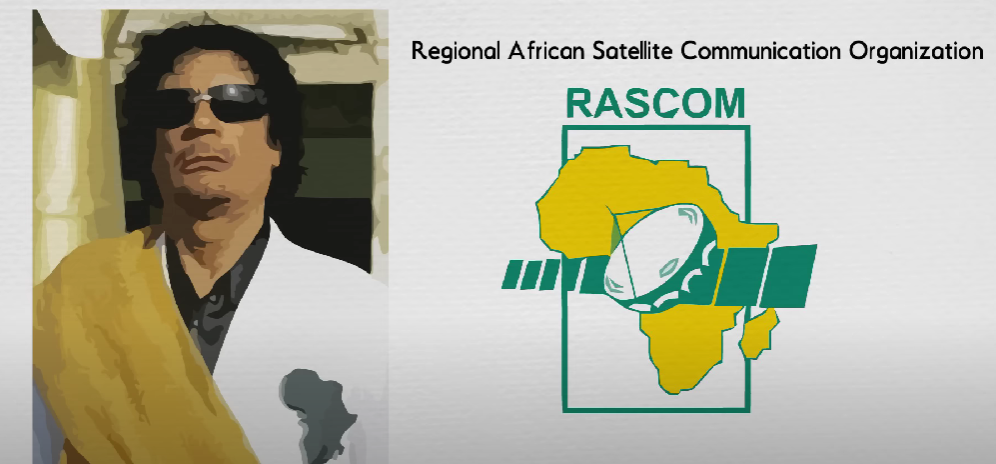
Gaddafi wished to build up the strength of Africa, using the newly founded African Union as a vehicle for integration projects. These liberation projects were looked on by Europe as a positive development, that is, until the AU began succeeding in its endeavors. The most well-known of these was of course the planned unified continental currency, the gold-based African dinar, a project which France was looking at closely, fearing that its neo-colonial territories in West Africa would abandon France.
This was revealed by WikiLeaks in the famous Clinton email dump. Then-French President Sarkozy expressed his enthusiasm for the destruction of Libya, arguing that Gaddafi’s plans for the African Union were a direct threat to French, as well as American, interests. Specifically, France feared Libya itself would supplant France as the dominant power in North Africa. Already, it was providing funding for infrastructure, mitigation in armed conflict, and fruitful bilateral ties. The question remains: Why did the Libyan government fund the 2007 presidential run of Nicolas Sarkozy?
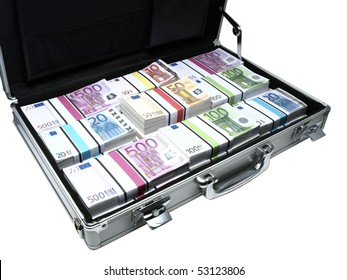
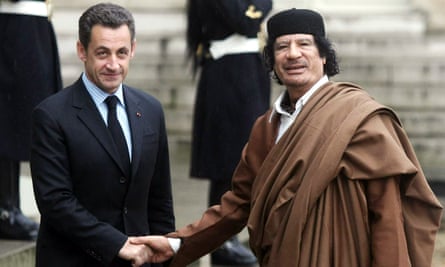
The topic of election interference remains contentious. In the case of Sarkozy, however, the allegations do indeed seem to carry weight. For almost two decades, he has been battling allegations and court cases dealing with this issue.
The case of September 2025 is the latest in these, where he has officially been jailed for five years. Sarkozy is charged with accepting millions of euros from the Libyan government, an unspecified amount, starting as low as 5 million to as high as 50 million euros. The charge suggests that the funding was meant to incentivize France to assist Libya in its rapprochement with the West. However, according to one of Muammar Gaddafi’s sons, the reasons indeed go much deeper.
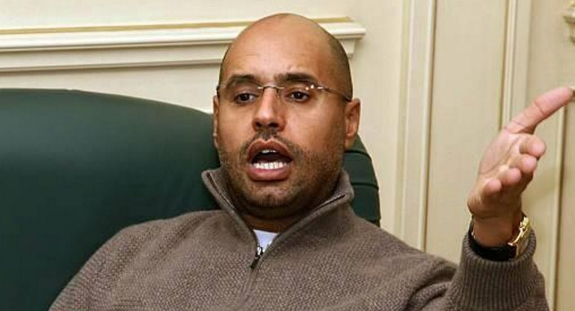
Saif al-Islam Gaddafi has been consistent in his disappointment for Nicolas Sarkozy. At the start of the 2011 NATO bombardment of Libya, Saif Gaddafi was interviewed by Euronews. In that interview Saif cheekily said this clown needs to give the Libyan people back their money. He claimed that he oversaw some of the suitcases which were given to French officials.
In addition, at trial, Saif was ready to provide recorded evidence and provide witnesses as well. Later, in 2018, Saif gave a sworn affidavit to French investigators. In a 2025 exclusive interview with RFI, Saif corroborated the facts once more, saying that Sarkozy has been trying to exert pressure on him regarding this evidence.
The first attempt allegedly came in 2021 through the Paris-based consultant Souha al-Bedri, who asked him to deny all claims of Libyan support for Sarkozy’s campaign in exchange for help in resolving his case with the International Criminal Court (ICC), where he remains wanted. The backdoor deals involving the Libyan and French governments remain mysterious. However, based on the actions of both parties, we can see that this arrangement was another sign of rapprochement with the West. Was this naiveté or desperate pragmatism?
Moussa Ibrahim, the former spokesperson for the Libyan Government, has spoken to Russia Today (RT) a dozen times on issues concerning Libya. In an interview with RT’s “Going Underground” in 2019, Moussa claimed that the Gaddafi government wished to keep the fighting front with the West quiet, so that they could pay attention to the African context.
Was the Libyan financing of Sarkozy one of these enigmatic chess moves? An attempt at pacification? Indeed, after Sarkozy’s election, he relaxed several court cases which were investigating Libyan officials for supposedly being state sponsors of terrorism.
In addition, sanctions were lifted and new bilateral ties opened. With this pacification, Gaddafi had the breathing space to build up his liberation projects. In his interview with “Going Underground,” Ibrahim drearily remarked,
We did not have enough time to build up our strength. If the 2011 conspiracy had been delayed…perhaps for five years…we would have been much stronger. We would have had strong alliances, a robust economy and our African brothers behind us. But the West understood we had our weaknesses. This is why they rushed in then [2011].
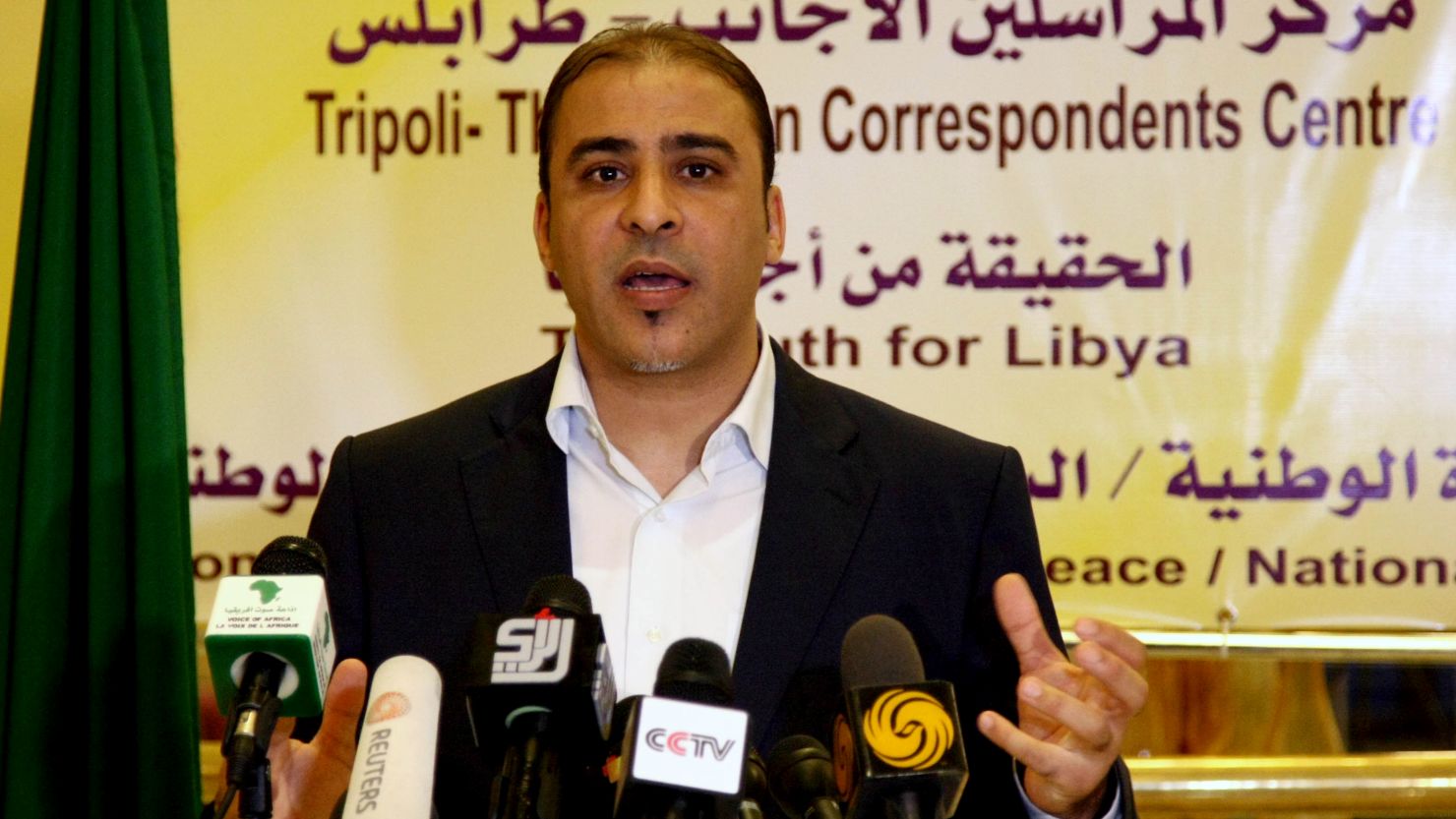
Gaddafi had tamed the French Rooster for a time, but the leash was too thin. France’s reputation in Africa remains abhorrent to this day.
Sarkozy has at last been found guilty this year, but not for his true crime. The true crime which Sarkozy has not been charged with is the destruction of Libya. France was the first country to send fighter jets to the North African country. Was it to cover up Sarkozy’s personal corruption?
Indeed, Sarkozy was personally invested in this war on Libya. However, the geo-political interests of France were at the forefront. Everyone knew that Libya’s growing strength in Africa was a flame that could spread quickly.
Sarkozy may not pay for his crimes in prison, but he will be remembered as a bloody, insignificant footnote.
Libya will not forget.

CovertAction Magazine is made possible by subscriptions, orders and donations from readers like you.
Blow the Whistle on U.S. Imperialism
Click the whistle and donate
When you donate to CovertAction Magazine, you are supporting investigative journalism. Your contributions go directly to supporting the development, production, editing, and dissemination of the Magazine.
CovertAction Magazine does not receive corporate or government sponsorship. Yet, we hold a steadfast commitment to providing compensation for writers, editorial and technical support. Your support helps facilitate this compensation as well as increase the caliber of this work.
Please make a donation by clicking on the donate logo above and enter the amount and your credit or debit card information.
CovertAction Institute, Inc. (CAI) is a 501(c)(3) non-profit organization and your gift is tax-deductible for federal income purposes. CAI’s tax-exempt ID number is 87-2461683.
We sincerely thank you for your support.
Disclaimer: The contents of this article are the sole responsibility of the author(s). CovertAction Institute, Inc. (CAI), including its Board of Directors (BD), Editorial Board (EB), Advisory Board (AB), staff, volunteers and its projects (including CovertAction Magazine) are not responsible for any inaccurate or incorrect statement in this article. This article also does not necessarily represent the views the BD, the EB, the AB, staff, volunteers, or any members of its projects.
Differing viewpoints: CAM publishes articles with differing viewpoints in an effort to nurture vibrant debate and thoughtful critical analysis. Feel free to comment on the articles in the comment section and/or send your letters to the Editors, which we will publish in the Letters column.
Copyrighted Material: This web site may contain copyrighted material the use of which has not always been specifically authorized by the copyright owner. As a not-for-profit charitable organization incorporated in the State of New York, we are making such material available in an effort to advance the understanding of humanity’s problems and hopefully to help find solutions for those problems. We believe this constitutes a ‘fair use’ of any such copyrighted material as provided for in section 107 of the US Copyright Law. You can read more about ‘fair use’ and US Copyright Law at the Legal Information Institute of Cornell Law School.
Republishing: CovertAction Magazine (CAM) grants permission to cross-post CAM articles on not-for-profit community internet sites as long as the source is acknowledged together with a hyperlink to the original CovertAction Magazine article. Also, kindly let us know at info@CovertActionMagazine.com. For publication of CAM articles in print or other forms including commercial internet sites, contact: info@CovertActionMagazine.com.
By using this site, you agree to these terms above.
About the Author
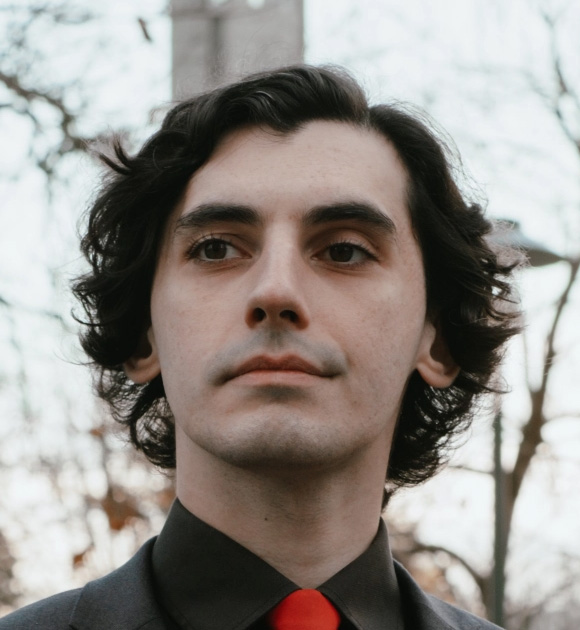
Nicholas Reed is the author of the upcoming novel Mystery of the Black Moon, which serves as the first installment in the series Stars of the Allmaker.
He is the recipient of the Vancouver ‘Fantastic Mom‘s writing contest award and was honored as ‘Most Revolutionary‘ in his graduating class.
Currently, he is employed as an English teacher in Moscow, where he delves into the intricate and enigmatic facets of the Russian world.
Nicholas can be reached at sogaardreed@gmail.com.

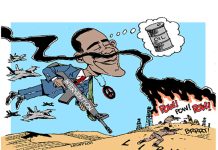
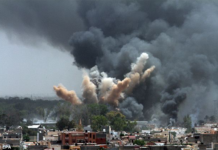

Lord God, if you can hear me, take Putler and bring back Gaddafi.
For those who are not aware Press TV is owned by the Iran Government and RT news is owned by the Russian Government.
On Presstv, their idiotic journalists were unpleasantly surprised by the respect for Gaddafi. We have not forgotten the brave hero of Africa, Gaddafi. I still admire them because I know that there have been no greater heroes than the Gaddafis since the death of Che Guevara. I still respect him.
RT is a disgusting fake news portal so fake that no WWE show is more fake and rigged.
Hasta Siempre Comandante Gaddafi. Saif al-Islam is the only one who can fix Libya. He is a wonderful gentleman, a man with a capital letter.
Until Sarkozy was imprisoned, the Russians were hypocritical of him on RT. Look at the comments on presstv. Some journalists on presstv wanted to sell winter for summer.
Apparently, presstv readers are not as naive and stupid as RT readers.
https://www.presstv.ir/Detail/2025/10/18/757117/Imam-Musa-Sadr%E2%80%99s-family-protests-court-decision-to-free-Gaddafi-son-on-bail
This is wonderful news. But it would be even better if Saif al-Islam was made president of Libya. They defended Africa from greedy colonialists.
Receive my respect, hero Gaddafi, and receive my disrespec, criminal, idiot, war criminal, thief, crook and traitor Putler.
Do you think Iranian Propaganda is crying now that they got RIPs for Muammar Gaddafi?
Iranian propaganda received condolences for Gaddafi. Readers did not believe that Hannibal Gaddafi had been killing since he was five years old. I’m just surprised that RT readers aren’t smart enough to expose Putin’s lies?